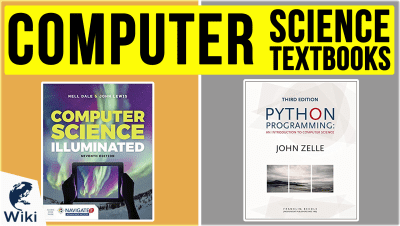6 Research Organizations Increasing Public Knowledge
In order for consumers and voters to make intelligent decisions, they first need to be informed. That can be difficult when there are so many complex parts of our government and economy that are difficult to understand. These groups work to simplify the process by providing information to the public, presenting it in a way that citizens can wrap their heads around, and helping people take action on issues that matter to them most. This video was made with Ezvid Wikimaker.
6 Contemporary Research Organizations
| Name | Headquarters | Field |
|---|---|---|
| Dartmouth Atlas Project | Lebanon, NH | Health care |
| Data Foundation | Washington, D.C. | Open data and government transparency |
| Smith + Crown | Portland, OR | Blockchain and cryptocurrency |
| TriNetX | Cambridge, MA | Global health research and clinical data |
| Consano | Portland, OR | Funding for medical research |
| Economic Security Project | New York, NY | Economic inequality |
The Economic Security Project Explores Guaranteed Income in Alaska
Can Blockchain Be Used For More Than Cryptocurrency?
It's important to distinguish the difference between these two things. Cryptocurrency is a form of digital money, while blockchain is the technology behind it. The two most popular cryptocurrencies are Bitcoin and Ether, but Ethereum's blockchain has uses beyond just buying and selling coins. Thanks to the ERC-721 standard, Ether can be used to buy crypto collectibles, which includes everything from assets like Factbar to games like Ether Online or MegaCryptoPolis. A token stored on the blockchain can be used to represent everything from money to services to property that exists in the real world. Investment funds are looking to invest in the blockchain, not necessarily the currency. That means they aren't buying a bunch of Ether, but rather they're purchasing a stake in companies that will use blockchain in new ways.
The Story Behind Consano
In Depth
The network of states, international institutions, world-spanning corporations, and non-governmental bodies that constitute and reproduce the global political order is extraordinarily complex. New forms of technology and the reams of data they produce only make things more complicated. That's one reason that a variety of public research organizations collect and distribute information to citizens. This list, presented in no particular order, highlights six such groups.
At #1, the Dartmouth Atlas Project has for more than 20 years documented variations in how medical resources are distributed and used in the United States. The project uses Medicare and Medicaid data to provide information and analysis about national, regional, and local markets, as well as hospitals and their affiliated physicians.
These reports and the research upon which they are based have helped policymakers, the media, health care analysts and others improve their understanding of the efficiency and effectiveness of our health care system. The group's website presents the data in a variety of interactive forms, including maps, charts, and videos.
These reports and the research upon which they are based have helped policymakers, the media, health care analysts and others improve their understanding of the efficiency and effectiveness of our health care system.
The #2 entry is The Data Foundation, which seeks to define an open future for people's data, for a better government and a better society, through research, education, and programming. The group believes that collecting, sharing, and using data in new ways can make state functions more transparent and efficient, and that better standards, broader publication, and improved reporting for data can lead to a flourishing future.
The foundation focuses its nonpartisan research, education, and programming in three areas: Deploying government info for public good; modernizing compliance data for efficiency and effectiveness; and harnessing private-sector data to improve business and society. Some ongoing research projects concern the officials responsible for such intelligence at the federal level, machine readability, and security and public policy.
Coming in at #3, Smith and Crown is the world's leading blockchain research organization. Since 2013 it has been studying the breadth of this area of tech with a focus on global trends, industry intelligence, and cryptoeconomic systems. The technology, most commonly associated with Bitcoin, is used to design and implement both systems of governance over capital and the creation of novel economies.
The technology, most commonly associated with Bitcoin, is used to design and implement both systems of governance over capital and the creation of novel economies.
The group's mission is to develop the highest quality of intelligence, analysis, and education around these topics as well as tools and networks to maximize their impact. It sees this work as a critical part of facilitating and supporting the application of these technologies, ideas, and systems. It also performs advocacy efforts, promoting the fields in which it operates, as well as an advisory arm for partner firms.
#4, TriNetX, is a global health research network that optimizes clinical data and enables discoveries through the creation of real-world evidence. The organization's service combines access to longitudinal clinical data with state-of-the-art analytics to quickly answer complex research questions. It sees its mission as a project to democratize the availability of cutting edge medical findings.
TriNetX Live enables researchers to analyze patient populations and perform analysis in real-time. The group's Network for Oncology Clinical Trials seamlessly integrates data from cancer study sources. The research platform allows users to explore, assess, and download data from a select set of members. Analytic services make it easier for epidemiologists and clinical researchers to sift through information sets.
TriNetX Live enables researchers to analyze patient populations and perform analysis in real-time.
#5 is Consano, a platform that enables users to donate any amount, small or large, directly to medical research projects that matter to them. While this type of work is typically paid for by grants from government or other large institutions, the group wishes to connect individuals directly to specific medical studies, allowing them to pool their money with others who care about the same issue.
In sourcing projects for the platform, Consano collaborates with development and administration offices at a variety of research institutions to source high quality and internally reviewed ongoing studies. Once users have donated to a specific effort, they are enabled to stay connected via regular updates from the researcher. The founder of the service was inspired to create it after her own battle with breast cancer.
Closing out the list at #6, it's The Economic Security Project, which responds to contemporary economic insecurity by studying and promoting efforts toward a guaranteed income for all Americans and those working to break corporate monopoly power. The group is made up of a network of academics, organizers, practitioners, and culture workers who wish to mainstream bold ideas and lead the movements to achieve them.
The group is made up of a network of academics, organizers, practitioners, and culture workers who wish to mainstream bold ideas and lead the movements to achieve them.
The organization believes that the way forward will require on-the-ground experimentation, moral imagination, and political muscle. It seeks to provoke, through ideas and strategies that can move the cultural zeitgeist; to legitimize these solutions, by expanding their evidence base and spreading narratives that support them; and ultimately, to win by establishing concrete programs in reality.















